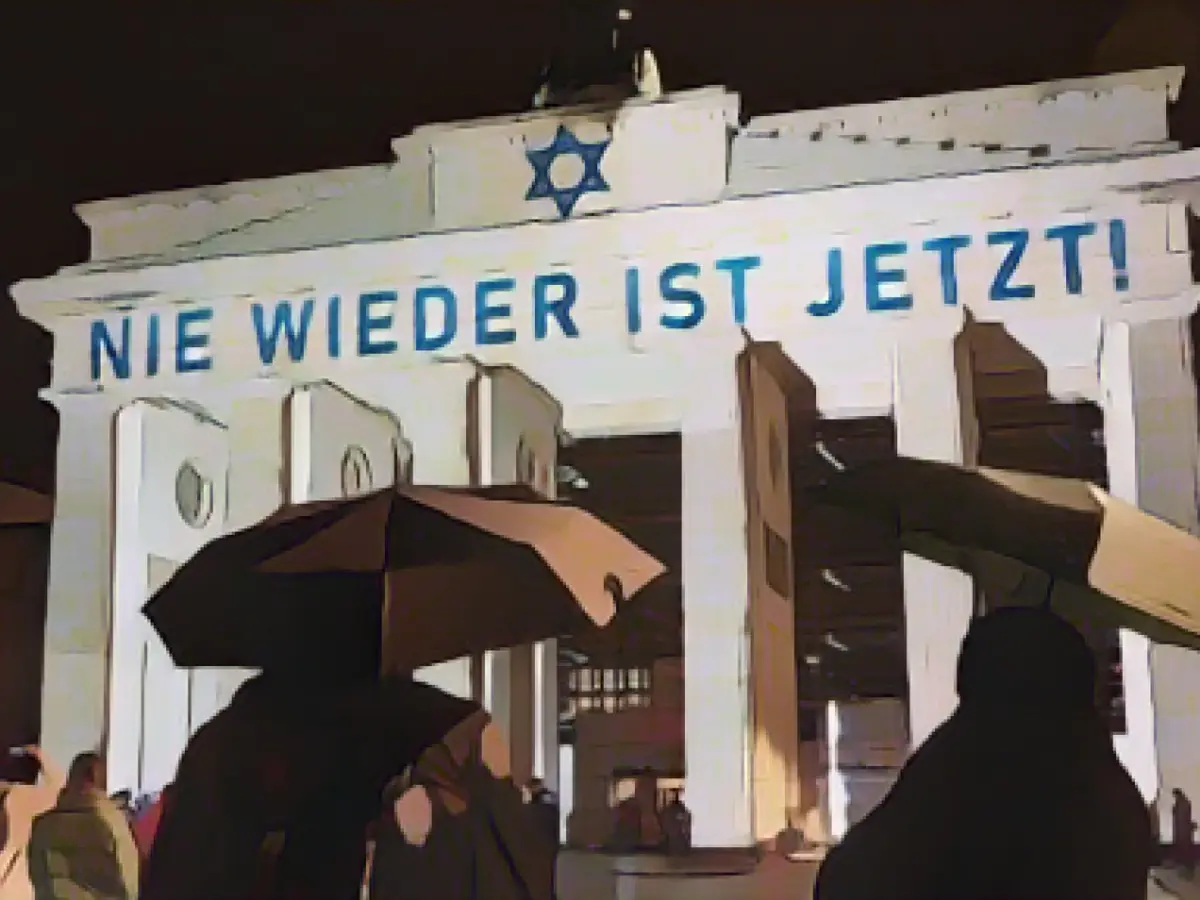German Jewish Communities Face Unprecedented Hostility
Intensive research into the state of Jewish communities in Germany has painted a troubling picture. Led by the Central Council of Jews, a prominent organization, a survey was conducted among 98 out of 105 Jewish community leaders across the nation. Shockingly, this study revealed that approximately one-third of these communities have experienced "anti-Semitic incidents" since Hamas launched attacks on Israel, which occurred on October 7. This encompasses a wide range of offenses, such as intimidating graffiti and hurtful verbal assaults.
In addition, the survey highlighted escalating psychological pressures on the Jewish communities. Such tension primarily stems from threatening phone calls, emails, and texts. As a consequence, an overwhelming percentage of 80% of community leaders have expressed concerns for their safety and the visibility of their Jewish identity in Germany, leaving many communities teetering on the brink of collapse.
"These are alarming statistics," stressed Central Council President Josef Schuster during the report presentation. He pointed out that the most vulnerable groups have been the elderly, families with children, and young individuals.
Remarkably, these findings also showed elevated trust in German security authorities from these Jewish communities, despite the alarming circumstances. Schuster expressed astonishment at this trust, considering the recent complications that have unfolded since October 7.
However, Schuster was quick to underscore the extreme implications of this trust. He urged society to remain vigilant against extremist groups that pose a threat to the Jewish community. He emphasized that anti-Semitism, irrespective of its origin, whether from right-wing, left-wing, or Islamic ideologies, jeopardizes Germany's open society and constitutional state.
In a subsequent interview, Schuster raised concerns about the escalating trend of anti-Semitism on the radical left. He acknowledged a noticeable uptick in anti-Semitic rhetoric and actions from the left, even stretching to academic settings.
Schuster also voiced concerns about the resurgence of far-right extremist groups. He admitted that while they may have taken a backseat in the public eye, they still pose a serious menace. Particularly in Berlin and North Rhine-Westphalia, Jewish individuals have reported experiencing dwindling feelings of safety and becoming victims of targeted attacks due to their religious affiliations.
(Enrichment Data: The survey mentioned in this report was conducted by the German Federal Association of Departments for Research and Information on Antisemitism (RIAS). The results indicated a substantial surge in antisemitic incidents in Berlin, with the first half of 2024 recording 1,383 incidents, which surpassed the total of 1,270 incidents in 2023. These incidents encompassed verbal attacks, acts of violence, and property damage. The escalating antisemitism has led to increased vigilance, with Jewish events now being protected by police and individuals relinquishing their open display of Jewish identity due to heightened fears.)
Key Insights
- Antisemitic Incidents: Antisemitic incidents across German Jewish communities have surged to an all-time high. These events have ranged from verbal attacks to property damage and violent attacks, leaving the communities feeling threatened and insecure.
- Psychological Pressure: A relentless stream of threatening phone calls, emails, and texts has put significant psychological strain on the leadership of these communities. As a result, many community leaders have expressed concerns about their safety and the visibility of their Jewish identity in Germany.
- Trust in Security Authorities: Despite the escalating situation, German Jewish communities continue to feel a strong sense of trust in the country's security authorities. This trust is crucial in helping these communities maintain a sense of security, despite the rising tide of antisemitism.
- The Radical Right: The resurgence of far-right extremist groups has been a growing concern within German Jewish communities. These groups have targeted Jewish individuals, leaving them feeling unsafe and vulnerable against hate-motivated attacks.
- The Role of Social Media: Social media platforms have become breeding grounds for hate speech, with reduced fact-checking efforts leading to the amplification of antisemitic narratives. This intensified polarization and provided extremist parties like the AfD the opportunity to capitalize on these sentiments, reinforcing prejudices against Jews.
Addressing the current challenges faced by German Jewish communities necessitates a multi-faceted approach. This includes education, media reforms, and internet regulation to effectively combat hate speech and protect these vulnerable communities from harm.




